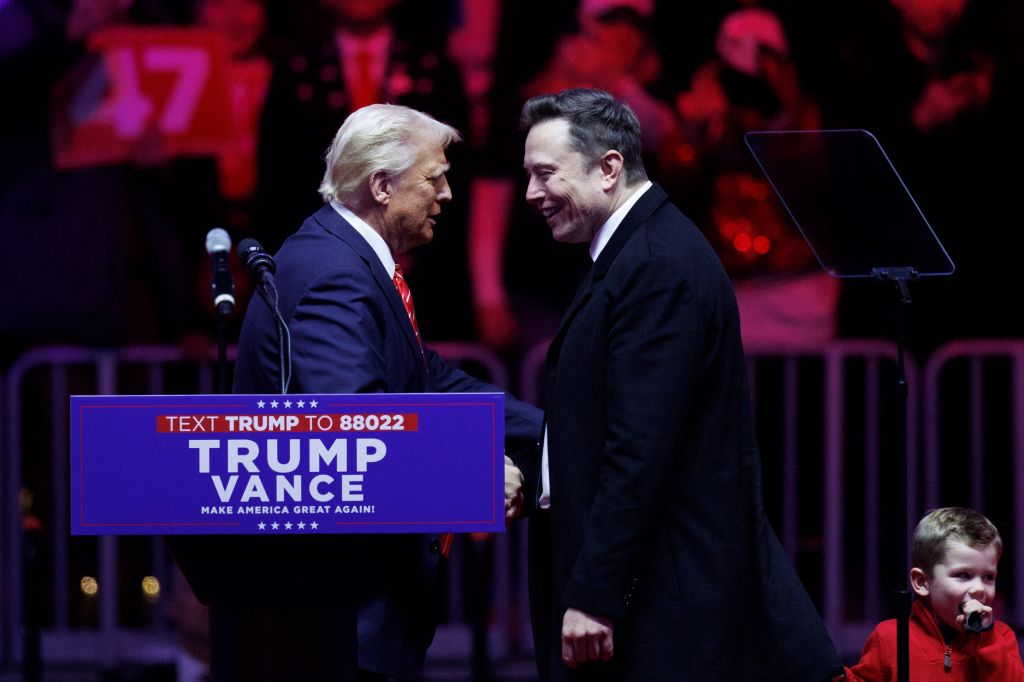President Donald Trump has threatened to cut off all U.S. funding to South Africa, accusing the country of taking land from white South Africans and treating them unfairly. The accusations echo similar rhetoric from Elon Musk, the South African-born billionaire who has become one of Trump’s closest advisers.
Trump, echoing rhetoric from Elon Musk, threatens South African funding
In a social media post-Sunday, Trump threatened to cut off all funding to South Africa. Trump accused the South African government of “confiscating land, and treating certain classes of people VERY BADLY.” Saying that the country was committing “a massive human Rights VIOLATION,” Trump declared that he “will be cutting future funding to South Africa until a full investigation of this situation has been completed!”
Trump is cutting off funding to South Africa and when he says they are "treating certain classes of people VERY BADLY" he’s talking about white people….and you know Elon’s fingers are all over this pic.twitter.com/kYnEC8Pfmu
— Wu Tang is for the Children (@WUTangKids) February 3, 2025
Although Trump did not specify which people were suffering from such alleged bad treatment, it is generally understood that Trump is referring to white South Africans, who are a small minority in the country but who dominated South Africa politically and economically during the decades of apartheid. And many see Trump’s sudden opposition to the South African government as being influenced by Elon Musk, who has been critical of the Black-led African National Congress government that has governed the country since the end of apartheid in the 1990s. Musk, who recently denied that he gave a Nazi salute during a Trump inauguration event, has used his social media platform, X, to accuse South Africa of having “racist ownership laws.”
Why do you have openly racist ownership laws? https://t.co/tHWVsmB04F
— Elon Musk (@elonmusk) February 3, 2025
South Africa deals with racial wealth gap, denies Trump claim
Trump’s accusations against South Africa’s government appear to be in reference to a new law in the country that allows the government to confiscate land without compensation. Land redistribution has been a major political issue in South Africa for some time. During the decades of apartheid, white South Africans controlled the vast majority of land in the country, including the most productive farm land, leaving little for the majority Black population. Even after apartheid ended in the 1990s, white economic elite were largely allowed to maintain much of their wealth, and land inequality has persisted despite demands for redistribution and policies intended to facilitate the sale of land to Black citizens. White South Africans maintain control of 72% of the country’s farms and agricultural land.
South African President Cyril Ramaphosa took to X to defend his policies. He noted that “the South African government has not confiscated any land” and argued that “South Africa, like the United States of America and other countries, has always had expropriation laws that balance the need for public usage of land and the protection of rights of property owners.” Ramaphosa, who called for engagement with the Trump administration over the issue, also questioned the potential impact of Trump’s threat, noting that “with the exception of PEPFAR Aid, which constitutes 17% of South Africa’s HIVAids programme, there is no other funding that is received by South Africa from the United States.”
South Africa is a constitutional democracy that is deeply rooted in the rule of law, justice and equality. The South African government has not confiscated any land.
The recently adopted Expropriation Act is not a confiscation instrument, but a constitutionally mandated legal…
— Cyril Ramaphosa 🇿🇦 (@CyrilRamaphosa) February 3, 2025
As Trump has attempted to roll back or cancel domestic and foreign aid programs while implementing tariffs and other measures against American allies, time will tell if South Africa becomes the latest target for the president’s punitive policies. If Trump and Musk continue using the federal government to push their agendas, South Africa could become the latest U.S. ally to be alienated by the administration’s attacks and policies.

